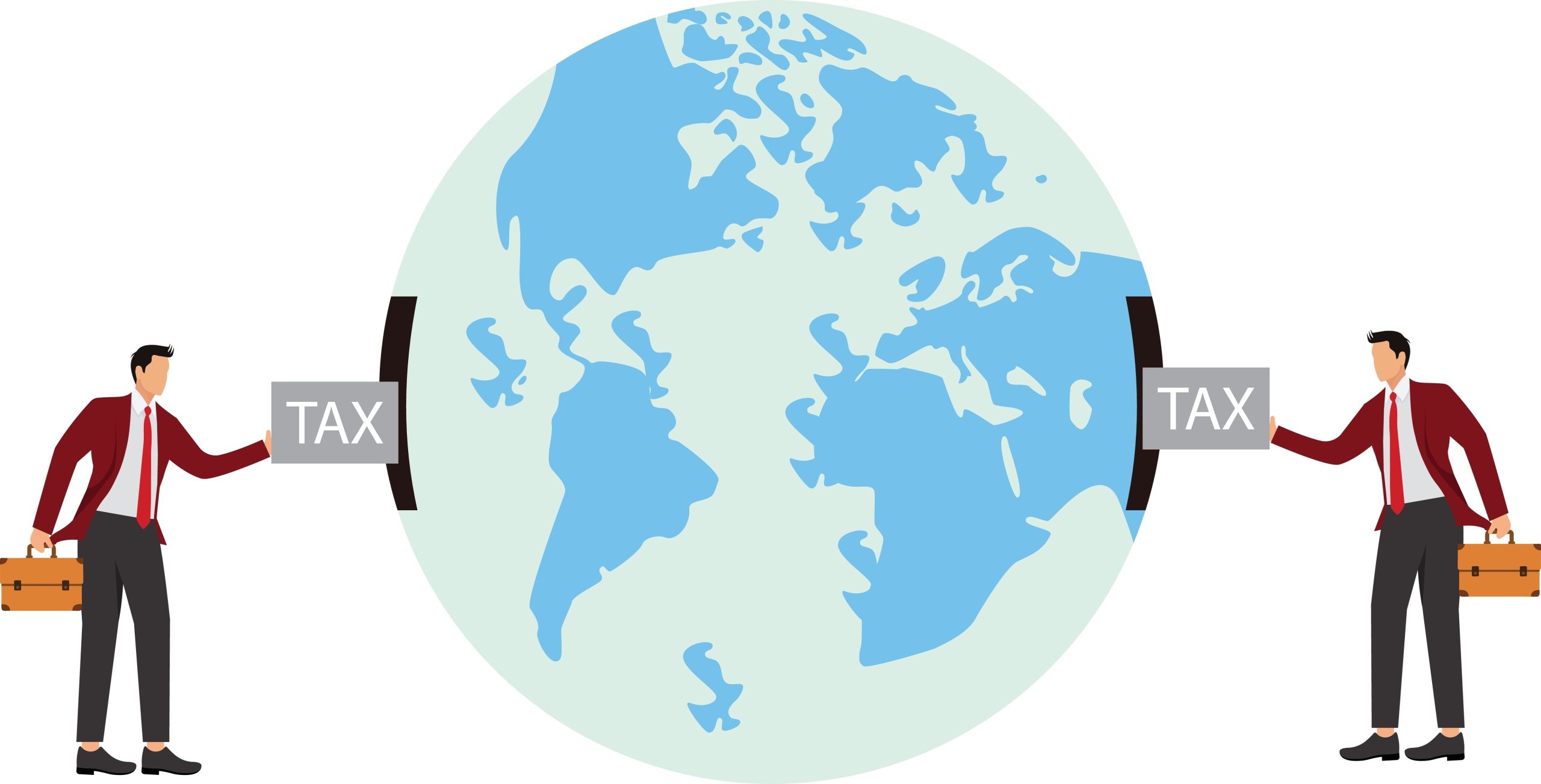
Global Minimum Tax (GMT) is an agreement committed to by more than 140 countries whereby they ensure multinational companies pay a minimum rate of tax.
This, combined with Pillar Two, is a significant step in the global effort to ensure multinational enterprises (MNEs) pay a fair share of tax wherever they operate.
Pillar Two introduces the Global Anti-Base Erosion (GloBE) rules which propose the introduction of a GMT rate of 15 per cent – this was proposed by the Organisation for Economic Co-operation and Development (OECD).
The new deal will also end the benefit of shielding multi-billion-pound profits in tax havens and intends to remove the incentive for nations that operate as tax havens for corporate giants.
International and cross-border tax issues can be complex, but it is important you understand the ins and outs to ensure you are protected against the implications of operating in multiple jurisdictions – as well as understand how the double taxation it brings might affect you.
How will the Global Minimum Tax close tax loopholes?
GMT seeks to end the practice of multinational companies shifting profits to low-tax countries and territories, even though the income was generated elsewhere.
Under the agreement, if a country levies a tax rate below 15 per cent, other countries will be able to impose a top-up tax that brings the total up to the minimum level.
The reform aims to ensure multinational enterprises contribute their fair share of tax, regardless of where they choose to locate their profits or headquarters.
Companies with earnings above €750 million (£641 million) are subject to the new 15 per cent rate, with the OECD estimating profit shifting will fall by half in the coming years.
The dilemma of double taxation
A concern that comes from the introduction of GMT is the potential for double taxation.
This occurs when the same income gets taxed in two different jurisdictions, further placing a burden on your business.
International tax rules contain many complexities, as do the variation in national tax systems, which can lead to significance compliance challenges for companies operating across borders.
Understanding the impact of Global Minimum Tax
The double taxation impact, under the GMT regime, can be multifaceted.
For your business, it not only increases the tax burden but also adds to the administrative complexities you might face.
You need to understand the detailed tax laws of each country you operate in, as well as adhering to the new global tax standards.
This can lead to increased operational costs and will require substantial adjustments in your corporate tax planning strategies.
Additionally, the risk of double taxation could potentially defer international investment and entrepreneurship.
You might need to reconsider expanding your operations into markets where the tax implications are uncertain, which can stifle your economic growth.
Mitigate measures and adapt
The OCED has emphasised the importance of coordination and cooperation among tax authorities in response to the challenges created by double taxation.
Measures such as the application of tax credits and the refinement of double tax treaties are crucial in mitigating the risk of double taxation.
As a business, you must adopt a proactive and strategic approach to navigate the new tax.
This includes re-evaluating tax structures, enhancing compliance mechanisms, and engaging in constructive dialogue with tax authorities to address concerns related to double taxation.
GMT is significant step towards a more equitable and transparent international tax system, but it is not without its challenges.
Seeking the guidance of Reanda’s international tax advisers is a necessity for global businesses looking to navigate the complexities of Global Minimum Tax and remain compliant.
Reanda UK is a subsidiary of leading independent accountancy firm Grunberg & Co Limited. Our aim is to help businesses and individuals to navigate the UK’s world-renowned business and tax infrastructure, and to support them with their international ambitions. To find out how we can help you, please contact us.





